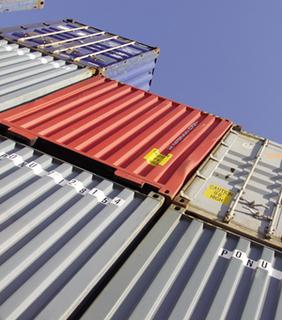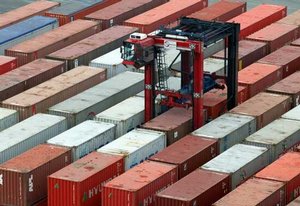VAT rules to change May 1
Published:
17 March 2004 y., Wednesday
An easing of the cash flow burden posed by VAT on intra-community trade and imports from outside the EU; a hike in administrative tasks for local companies; the introduction of a new VAT grouping scheme; positive changes in VAT regulations concerning call-off stock; these are among a slew of changes to the law on value-added tax passed by Parliament last Monday.
Lawmakers also reversed a regulation obliging foreign consignment stock companies to establish branch offices or subsidiaries when serving clients from Hungary.
The amendments will mostly take effect upon EU accession on May 1.
“The new VAT law brought in several unexpected positive changes,” Rуbert Heinczinger, tax partner at Ernst & Young Advisory Kft, said last week.
“Despite its shortcomings, the new law reflects the lawmakers’ efforts to improve Hungary’s competitiveness in the EU,” commented Regina Simon, tax manager at rival KPMG, speaking at the company’s press briefing last Friday.
Amongst the positive changes, Simon noted that importers no longer have to finance the VAT on all imports from their cash flow. From May 1, local companies involved in intra-community trading – trading within the EU – do not have to pay VAT in advance on products brought in from within the community.
The VAT content of such transactions will have to be declared at the end of the regular VAT declaration period, and VAT paid in that period can be deducted from VAT gains.
“This is good news for local companies,” Simon said.
According to Simon, however, companies trading in the EU will have to pay attention to administrative tasks like obtaining and regularly updating the EU tax registry number of all their trading partners.
This is because the EU’s VAT directive essentially states that companies sell their goods to buyers from another EU country without charging sales tax, and the foreign entity declares and pays the sales tax in its own country.
“If the tax number is missing or wrong, it will be impossible to track whether the due VAT was footed by the foreign partner. In such cases, the local tax office will make the local company pay the missing VAT amount,” she explained.
Šaltinis:
bbj.hu
Copying, publishing, announcing any information from the News.lt portal without written permission of News.lt editorial office is prohibited.
The most popular articles
 President of the Republic of Lithuania Dalia Grybauskaitė welcomed the decision taken by the U.S. Government to transport shipments for the international mission in Afghanistan by transit via the Klaipėda Seaport.
more »
President of the Republic of Lithuania Dalia Grybauskaitė welcomed the decision taken by the U.S. Government to transport shipments for the international mission in Afghanistan by transit via the Klaipėda Seaport.
more »
 EU Solidarity Fund aid to repair storm damage in France and Portugal was approved by the Budgets Committee on Thursday.
more »
EU Solidarity Fund aid to repair storm damage in France and Portugal was approved by the Budgets Committee on Thursday.
more »
 The European Investment Bank and the Government of Samoa formally agreed to support the rehabilitation and upgrade of independent water schemes in the Pacific island state under a EUR 250,000 technical assistance programme.
more »
The European Investment Bank and the Government of Samoa formally agreed to support the rehabilitation and upgrade of independent water schemes in the Pacific island state under a EUR 250,000 technical assistance programme.
more »
 Steps to overhaul the European Union's flagship single market were discussed on Tuesday (9 November) by MEPs and interested parties.
more »
Steps to overhaul the European Union's flagship single market were discussed on Tuesday (9 November) by MEPs and interested parties.
more »
 Strategy to secure a sustainable EU energy supply and support economic growth over the next decade.
more »
Strategy to secure a sustainable EU energy supply and support economic growth over the next decade.
more »
 EU funding to help 850 former workers in the aircraft maintenance industry around Dublin find new jobs was approved by the European Parliament on Thursday.
more »
EU funding to help 850 former workers in the aircraft maintenance industry around Dublin find new jobs was approved by the European Parliament on Thursday.
more »
Saffron farmers in western Afghanistan hope to oust opium as a harvest crop.
more »
 The European Commission has approved an application from Poland for assistance from the European Globalisation adjustment Fund (EGF).
more »
The European Commission has approved an application from Poland for assistance from the European Globalisation adjustment Fund (EGF).
more »
 New plans for EU industry to create jobs while keeping manufacturing in Europe.
more »
New plans for EU industry to create jobs while keeping manufacturing in Europe.
more »
 The European Commission has approved two applications from Spain for assistance from the EU Globalisation Adjustment Fund (EGF).
more »
The European Commission has approved two applications from Spain for assistance from the EU Globalisation Adjustment Fund (EGF).
more »